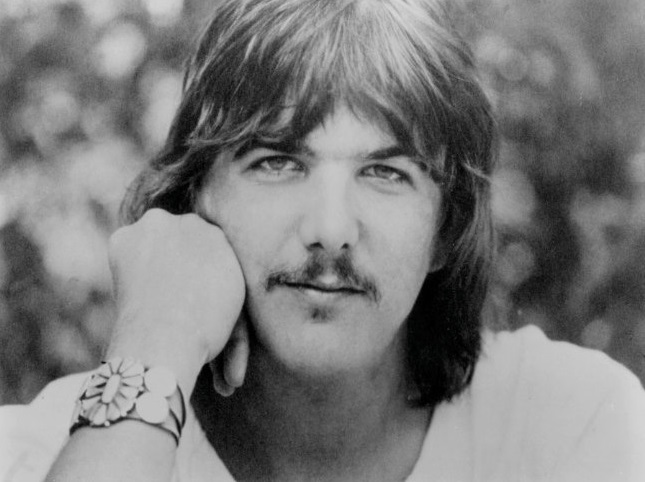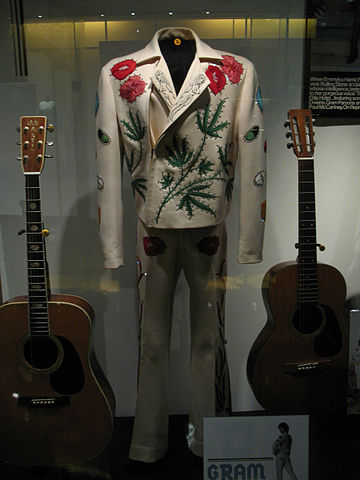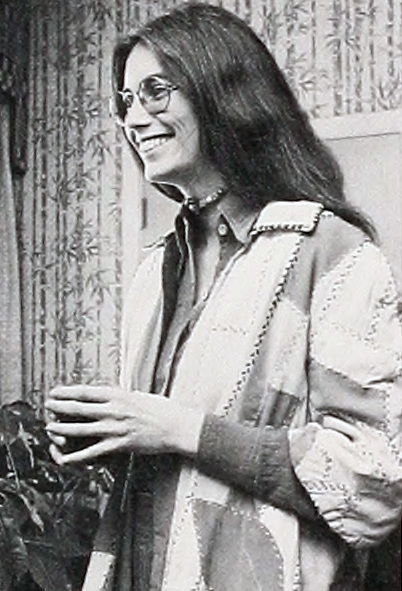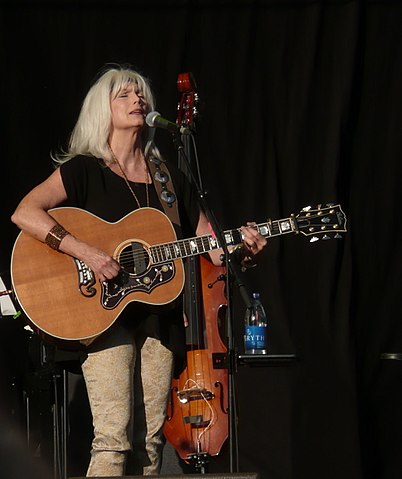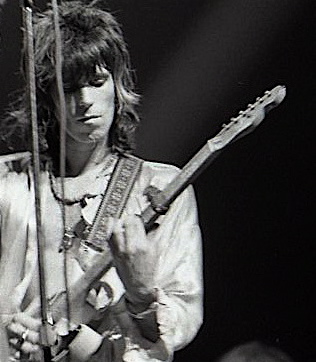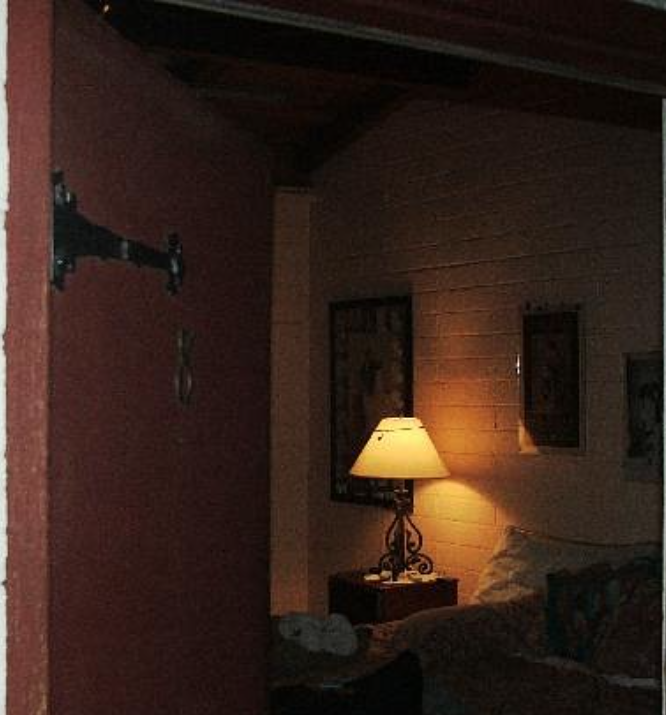Part Hank Williams and part Spinal Tap, Gram Parsons’ influence on popular music can be heard every day.
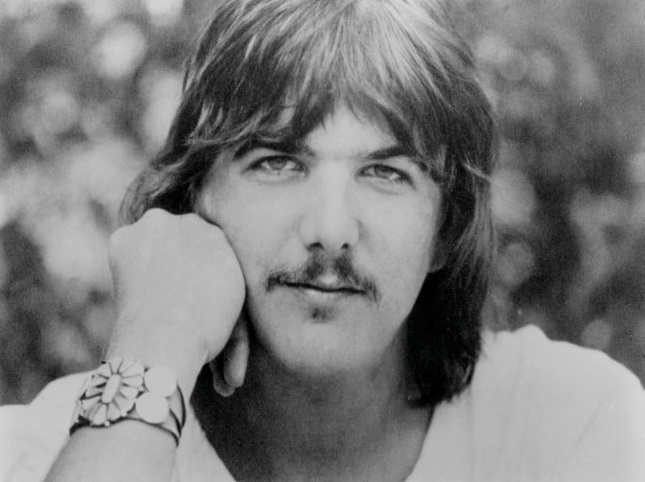
Fifty years after his death, Gram Parsons has achieved respect as an influence on many prominent musicians and is perceived as musically way ahead of his time.
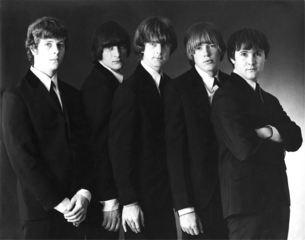
For three years, beginning with their 1965 hits, one band, the Byrds, dominated the Los Angeles music scene. What original music they produced was usually written by lead vocalist Gene Clark and the huge royalties generated by his writing credits, rankled the other band members, especially, David Crosby, whose personality could best be described as toxic. After contributing the single “Eight Miles High,” Clark quit the band, officially over his fear of flying but also as a result of increasing tension within the group. Crosby lasted longer, but his egomania and substance abuse resulted in his dismissal in late 1967. The remaining original members, Roger McGuinn and Chris Hillman were initially looking to hire sidemen, in drummer Kevin Kelley and Gram Parsons, Gram having the same business manager as Hillman. That Parsons was contractually entangled with Lee Hazlewood, actually worked for the pre-existing Byrds as Gram could only remain on salary and not demand to be included as a full-fledged member of the band, important as the Byrds renewed a seven-year contract with Columbia Records in February, 1968.
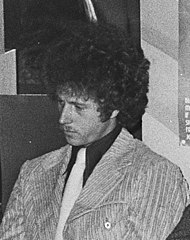
Unpredictably, when Gram began looking for musicians for his own group he began speaking again with Chris Hillman. Although it angered the other band members, the timing of Gram’s departure from the Byrds seemed almost prescient, based on subsequent events. The group took tremendous criticism when they played to all white crowds in South Africa and attendance was sparse in any case. The promoter stiffed them on fees and they returned to the States, broke, with Roger McGuinn making personnel changes designed to reestablish his complete control. To Chris Hillman, Gram eventually appeared practically benign by comparison. Reunited, they scoured the LA sessions scene and assembled a country oriented roster that even included a pedal steel guitar player, the legendary Sneaky Pete Kleinow. Gram expropriated the Flying Burrito Brothers name with the blessing of his former ISB mates who had left LA and had never signed a recording contract.
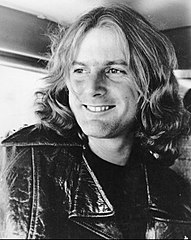
A subtle tug of war was now playing out between Roger McGuinn and Gram and Chris Hillman. The latter were intent on heading full tilt in a country direction, McGuinn wanted to focus on past hits that centered on him as the leader of the band.
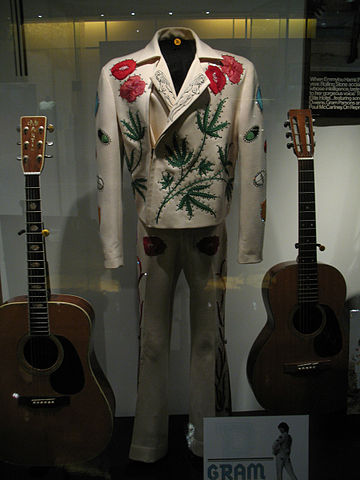
To help build the band’s image as a new kind of country mixed with glam, Parsons came up with the idea to get the legendary Hollywood tailor Nudie Cohn to design suits for the band to wear on the cover. Nudie Cohn born Nuta Kotlyarenko in Kiev, Russia, was a unique individual in his own right, a tailor who designed the outrageous outfits sported by country and western music stars of the 50’s and 60’s and actors like Roy Rogers and John Wayne. Heavy on the bright colored satin and rhinestones, perhaps Nudie’s most famous creation was Elvis Presley’s gold lame suit that even Elvis thought was so over the top he eventually refused to wear the pants. For the Flying Burrito Brothers album, entitled the Gilded Palace of Sin, Nudie was especially imaginative. For Hillman, Parsons and the two other band members, Kleinow and bassist Chris Etheridge, he designed four very different outfits. Kleinow got a black velvet shirt and pants with a gold pterodactyl on the front and a T-Rex on the back of the shirt, Etheridge had a white colored jacket and pants embroidered liberally with roses. Chris Hillman’s outfit was neon blue, festooned with peacocks and a blazing sun on the back of his jacket. Gram Parsons suit was white, flames paralleling his bell bottom pants, poppies on both pants pockets. Red poppies are everywhere on the jacket, the torso emblazoned with marijuana leaves. The sleeves feature identifiable pharmaceuticals, including Tuinals and Seconals and even a sugar cube. Typically contradictory, the back features a large red crucifix with circular shafts of yellow and blue emanating from its center. Today, this remarkable garment hangs in the Country Music Hall of Fame.
Podcast: Play in new window | Download
Subscribe: RSS

